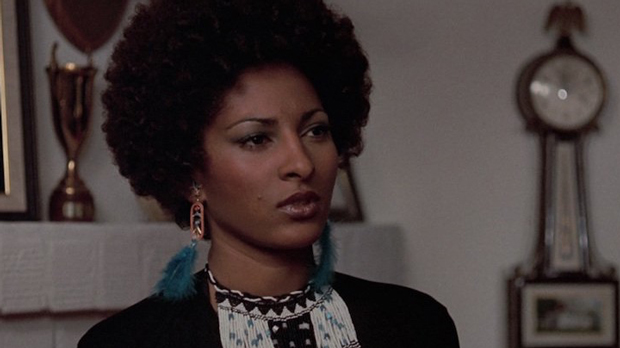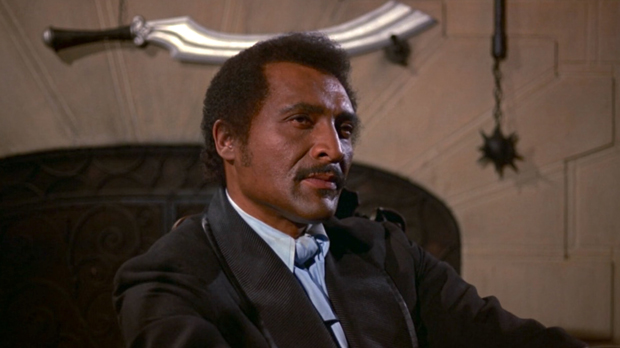 Glitter (2001) 20th Century Fox-Columbia/Drama-Musical RT: 104 minutes Rated PG-13 (some sensuality, language, brief violence) Director: Vondie Curtis Hall Screenplay: Kate Lanier Music: Terence Blanchard Cinematography: Geoffrey Simpson Release date: September 21, 2001 (US) Cast: Mariah Carey, Max Beesley, Terrence Howard, Da Brat, Tia Texada, Eric Benet, Valerie Pettiford, Ann Magnuson, Dorian Harewood, Grant Nickalls, Padma Lakshmi, Isabel Gomes. Box Office: $4.2 million (US)/$5.2 million (World)
Glitter (2001) 20th Century Fox-Columbia/Drama-Musical RT: 104 minutes Rated PG-13 (some sensuality, language, brief violence) Director: Vondie Curtis Hall Screenplay: Kate Lanier Music: Terence Blanchard Cinematography: Geoffrey Simpson Release date: September 21, 2001 (US) Cast: Mariah Carey, Max Beesley, Terrence Howard, Da Brat, Tia Texada, Eric Benet, Valerie Pettiford, Ann Magnuson, Dorian Harewood, Grant Nickalls, Padma Lakshmi, Isabel Gomes. Box Office: $4.2 million (US)/$5.2 million (World)
Rating: ***
While it’s true that all that glitters isn’t gold; the movie Glitter isn’t as horrible as its reputation suggests. Oh, it’s a bad movie alright. Singer Mariah Carey, in her acting debut, shows that her five-octave range does not extend beyond her singing voice with her one-note acting. The plot is lifted directly from A Star is Born. It’s filled with clichés, bad acting and dippy dialogue. But it’s so campy and unintentionally funny it earns a solid placement in the “so bad it’s good” category putting it in the company of such musical non-classics as Can’t Stop the Music, Xanadu, The Apple, Grease 2 and The Pirate Movie.
It’s bad enough Glitter was originally slated to open the final weekend of August, a slot traditionally filled by stinkers. Then its release was delayed by three weeks after Carey suffered a very public emotional breakdown. By the time it opened on September 21, its fate was pretty much sealed. Predictably, Glitter took a nose dive at the box office with a paltry gross of $4.2M against a $22M price tag. Critics savaged it, audiences avoided it like the plague, but I had a ball watching it.
We first meet future superstar Billie Frank as a child (played by Gomes) who gets placed in foster care after her alcoholic mother, nightclub singer Lillian (stage actress Pettiford), nearly causes them to burn to death by falling asleep with a lit cigarette. The story jumps ahead to 1983 with Billie (Carey) and her foster sisters, Louise (rapper Da Brat) and Roxanne (Texada, Third Watch), sharing an apartment and working as club dancers. That’s where they meet T (Howard, Empire) who hires them as back-up singers for the talentless Sylk (model Lakshmi).
Club DJ/composer Dice (British actor Beesley) discovers that T has been dubbing Sylk’s voice with Billie’s and immediately offers his services as her manager. He promises to pay T the sum of $100,000 in exchange for releasing her from her contract. Dice makes good on his promise of signing Billie with a major recording label. It doesn’t take her long to achieve stardom. They start a relationship, but her sudden success threatens to end it. Her obvious attraction to another singer Rafael (R&B singer Benet) doesn’t help any.
I LOVE the 1983 setting! I LOVE the early 80s club scene! I LOVE the unrealistically safe-and-clean streets of New York! It was filmed mostly in Toronto, but never mind. Glitter is lively and flashy; it’s like an extended music video for the film’s soundtrack. Speaking of videos, the scene where Billie films one for a difficult director is a riot. He gets off two of the movie’s best unintentionally hilarious lines- “The glitter can’t overpower the actress!” and “We ask ourselves, is she black? Is she white? We don’t care. She’s exotic. I want to see more of her breasts.” Wish granted, dude! Carey’s breasts should have been listed in the credits as they get a lot of screen time. Looking at some of the dresses she squeezes into, it’s no wonder one character calls her “Titsy the Porn Star”.
Carey is pleasing to the eyes and ears, but she’s no actress. She has zero emotional range. She has two facial expressions in her repertoire. In some scenes, she’s easily outacted by her cat. Oh yeah, about that cat. Are kids really allowed to bring their pets when they’re placed in foster centers? Little Billie brings it with her and still has it when she’s living with her friends. AHA, further proof that Glitter takes place in an alternate universe where the early 80s never ended and life is a collection of movie clichés. Clichés like the increasingly acrimonious relationship between Dice and T. Clichés like Dice becoming increasingly frustrated over his decreasing role in Billie’s career and life. Glitter is very predictable, especially if you’ve seen any or all four versions of A Star Is Born (1937, 1954, 1976 and 2018).
The music is pretty good. “Never Too Far” is a beautiful song. The soundtrack also includes a few tunes from the era like “Last Night a DJ Saved My Life” (by Indeep) and “I Didn’t Mean to Turn You On” (performed by Carey). Just one problem. “Relax” (by Frankie Goes to Hollywood) didn’t come out in the US until ’84, what’s it doing in a movie that takes place in ’83? It must be more alternate universe stuff.
Aside from Carey, the acting in Glitter ranges from passable to campy. Howard oozes sufficient menace as slimy T. Beesley has some appeal, but his performance is rather wooden. Magnuson camps it up as Billie’s publicity agent. She even has a gay PA that gushes over every single decision. Musical drama isn’t new territory for writer Kate Lanier. She also wrote the script for the 1993 Tina Turner biopic What’s Love Got to Do with It. She knows a thing or two about urban culture (Set It Off, Beauty Shop). I’d like to know what she was tripping on when she wrote Glitter. In the midst of all the surrealism, she includes a subplot about Billie searching for her mother. It’s almost as though it was included as an afterthought since it takes up only a few scenes scattered throughout the movie. The ending feels curiously tacked on.
The more I think about it, surreal is a perfect way to describe Glitter and the experience of watching it. It’s a nice throwback to old school bad filmmaking. It’s great fun if you dig bad movies. I realize that Glitter is still a sore point with Carey and she probably won’t find this review very complimentary, but I actually love what she does in this movie. Her performance is so bad it achieves a level of awesomeness. In this case, it’s the movie’s faults that make it a camp classic. She should be proud and I’m not being sarcastic.




